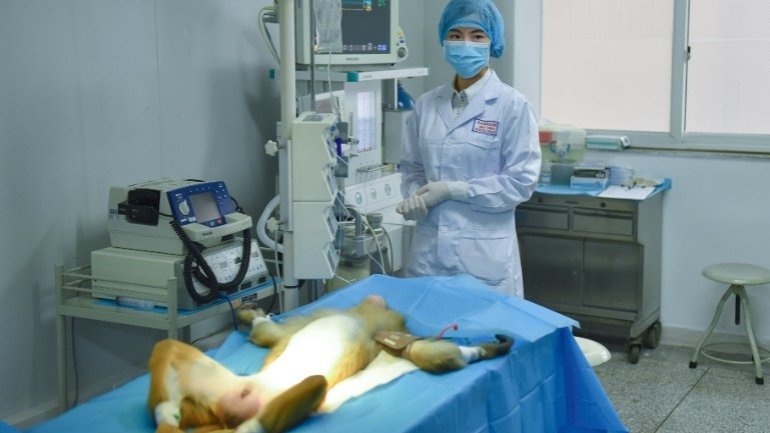Chinese scientists implant 3-D printed blood vessels into monkeys
 foto: Sichuan Revotek
foto: Sichuan Revotek
A major breakthrough in 3-D printed medicine could bring hope to nearly 1.8 billion patients with cardiovascular disease, informs CNN.
Chinese scientists working for Sichuan Revotek have successfully 3-D printed blood vessels and implanted them in rhesus monkeys, the company said.
It is a major step on the road to mass printing human organs for transplants.
The company is "the first to have maintained the viability of the cells with the 3-D printing technology," said James Kang, chief scientist and CEO of Sichuan Revotek.
The key to the experiment's success was the biological material developed by Sichuan Revotek, known as bio-ink, which is made from stem cells derived from the fat tissue of monkeys.
During the surgery, Kang's team replaced a 2-centimeter segment of abdominal artery with a 3-D printed blood vessel in 30 rhesus monkeys.
Within five days of implantation, the stem cells were able to grow into the various types of cells needed to make a functioning blood vessel, including endothelial cells and smooth muscle cells.
One month later, the grafted vessels had completely merged into the monkey's own artery and functioned "exactly the same" as the monkey's original vessel, the company said.
Last year, Sichuan Revotek created the world's first blood vessel bio-printer, which is said to be able to produce living tissue and organs.
SCIENCE
- Chinese archaeologists make 'shiny' discovery as old as 2,300 years
- Chinese fake bank founders jailed for swindling
- Scientists discover new organ in human body
- Beijing creates anti-smog police to confront air polluters
- Harbin International Snow and Ice Festival launches for 33rd time in northern China
- Guangzhou to halt poultry trade for three days during Jan-March